Ducks depend heavily on their sharp vision for foraging, swimming, and navigating their environment, making eye infections a serious concern for duck owners. If you’re noticing issues like redness, discharge, or squinting in your ducks, understanding eye infections in ducks is essential. This comprehensive guide covers the causes, signs, prevention tips, and effective treatments to keep your flock’s eyes healthy and bright. Whether you’re a new or experienced duck keeper, these insights will help safeguard your feathered friends’ ocular health.
As part of our ongoing series on avian health, we’ll draw from veterinary expertise and real-world experiences to provide reliable advice. For additional support on immune-boosting supplements, check out our article on probiotics for birds.
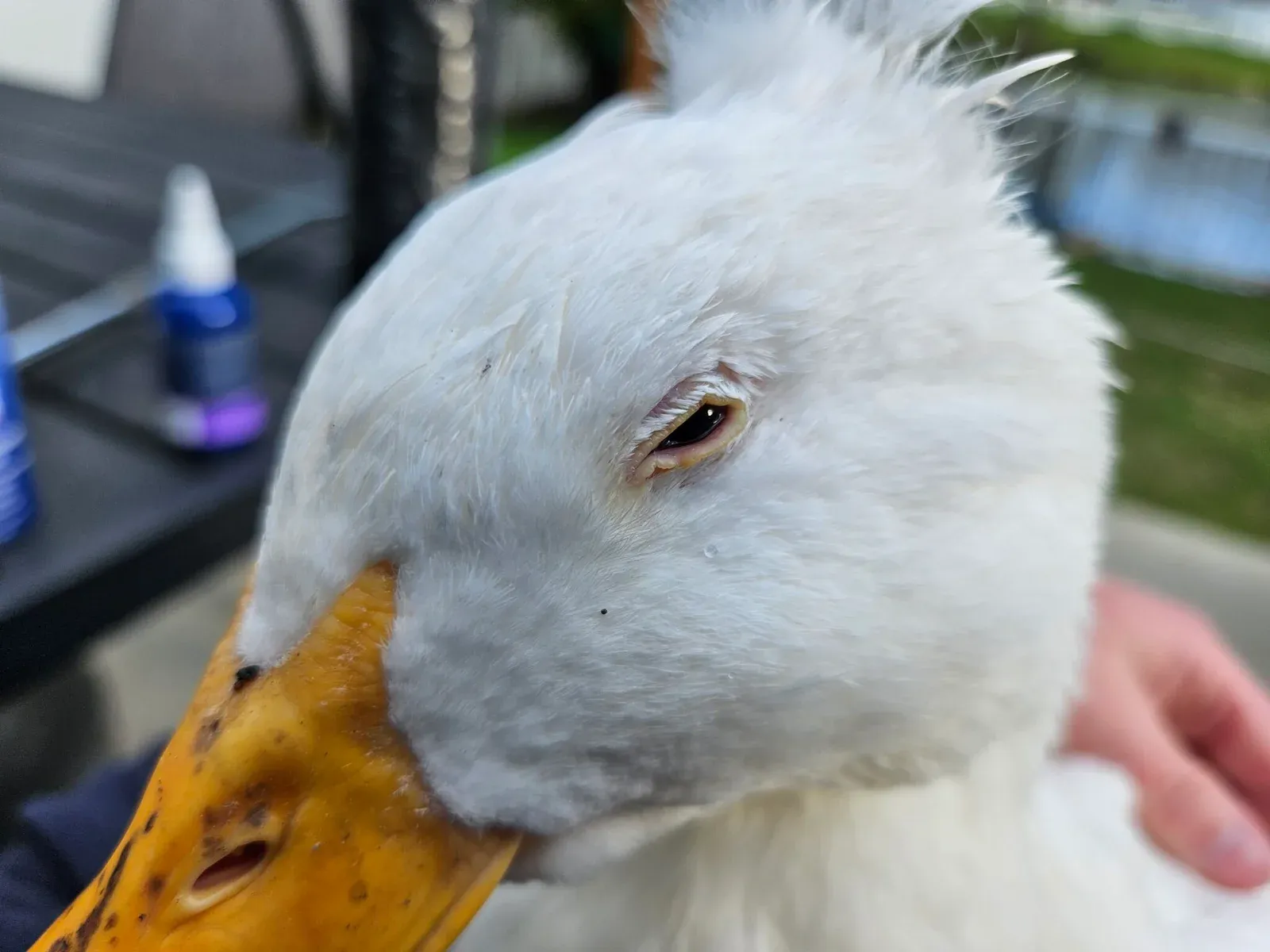 Duck with eye infection showing swelling around the eye
Duck with eye infection showing swelling around the eye
Understanding Eye Infections in Ducks
Eye infections in ducks can arise from multiple factors, including bacteria, viruses, fungi, injuries, parasites, and poor nutrition. These resilient birds are prone to ocular issues in damp or contaminated environments typical of duck habitats. Recognizing the root causes allows proactive care, reducing the risk of vision loss or secondary complications. Veterinary sources emphasize that early intervention is key, as untreated infections can spread or impair overall health.
Common Causes of Eye Infections in Ducks
Several triggers contribute to eye infections in ducks, often linked to their active, water-loving lifestyle. Here’s a breakdown of the most frequent culprits:
- Bacterial Infections: Pathogens like Escherichia coli, Staphylococcus aureus, and Pseudomonas enter through scratches, dirty water, or overcrowding, causing inflammation.
- Viral Infections: Avian influenza or duck viral enteritis can inflame eye tissues, severely impacting vision.
- Fungal Infections: Aspergillus or Candida thrive in humid coops, leading to keratitis.
- Environmental Irritants: Dust, pollen, pollutants, or lawn clippings irritate eyes during foraging.
- Trauma or Injury: Pecks from flockmates, sharp objects, or collisions damage delicate tissues.
- Parasitic Infestations: Mites, ticks, or migrating worms irritate and infect eye areas.
- Nutritional Deficiencies: Lack of vitamin A or selenium weakens immunity and eye health.
Addressing these through habitat management and diet is crucial for prevention.
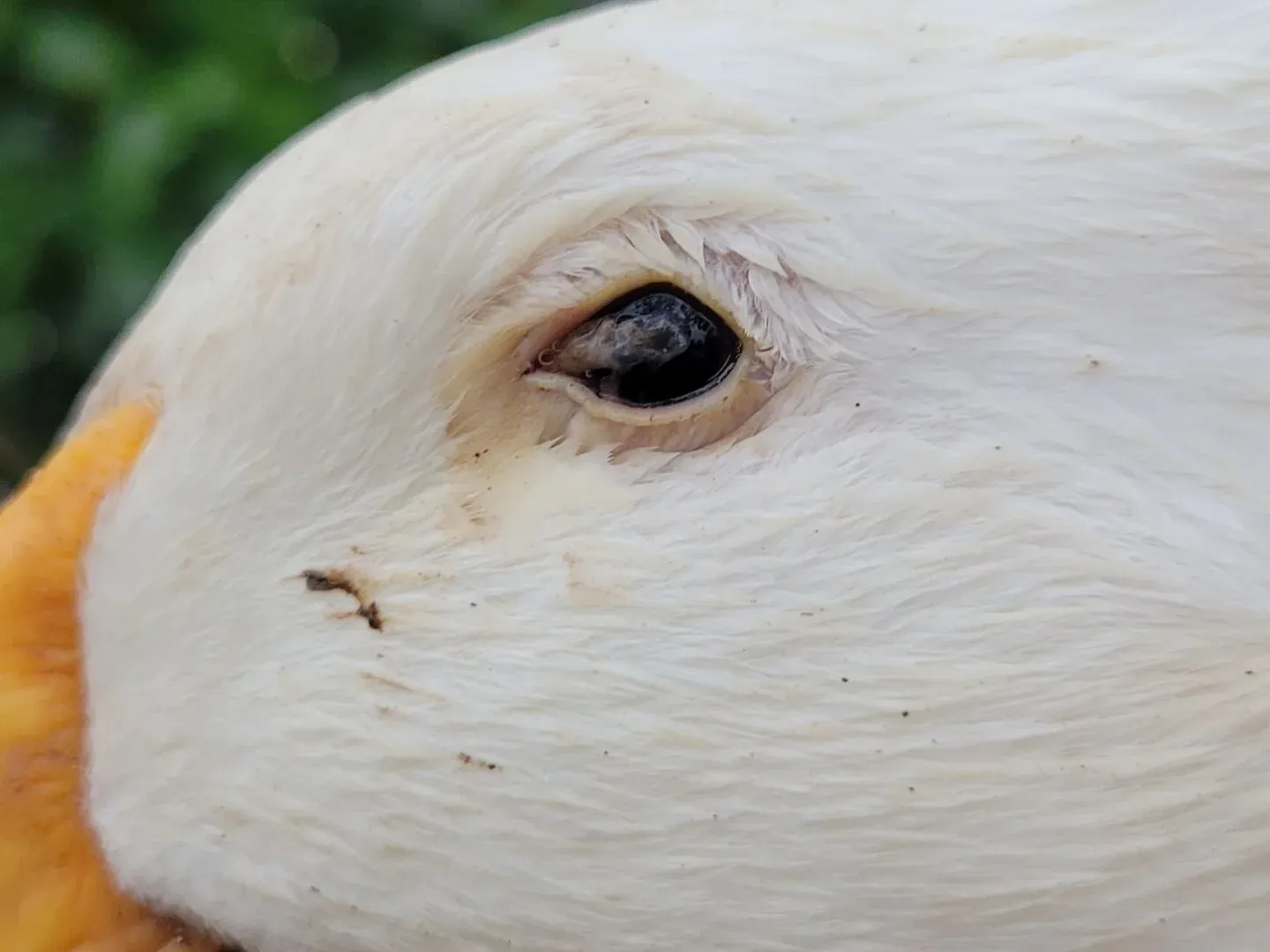 Close-up of duck eye showing signs of infection
Close-up of duck eye showing signs of infection
Signs and Symptoms of Eye Infections in Ducks
Spotting eye infections in ducks early through behavioral and physical cues can prevent worsening. Ducks mask pain well, but watch for these indicators:
- Excessive Blinking or Squinting: Frequent eye closure due to light sensitivity or pain.
- Redness, Swelling, or Inflammation: Puffy eyelids signal infection response.
- Discharge or Mucus: Clear to thick pus from the eye; ducks may rub it away.
- Foamy Discharge: White froth around eyes, often from respiratory issues.
- Feather Loss Around Eyes: From scratching or inflammation.
- Cloudiness or Opacity: Hazy cornea impairs vision.
- Lethargy or Reduced Appetite: Affected ducks avoid activity and food.
- Rubbing or Holding Eye Closed: Attempts to relieve itchiness.
- Social Withdrawal: Isolation or aggression due to poor vision.
Prompt observation ensures timely vet care.
Foamy Eye in Ducks
Foamy eye features bubbly white discharge, often from bacterial respiratory infections triggering a defensive response. Accompanied by sneezing or coughing, it can also stem from irritants like debris or mating injuries. While alarming, mild cases resolve with cleaning.
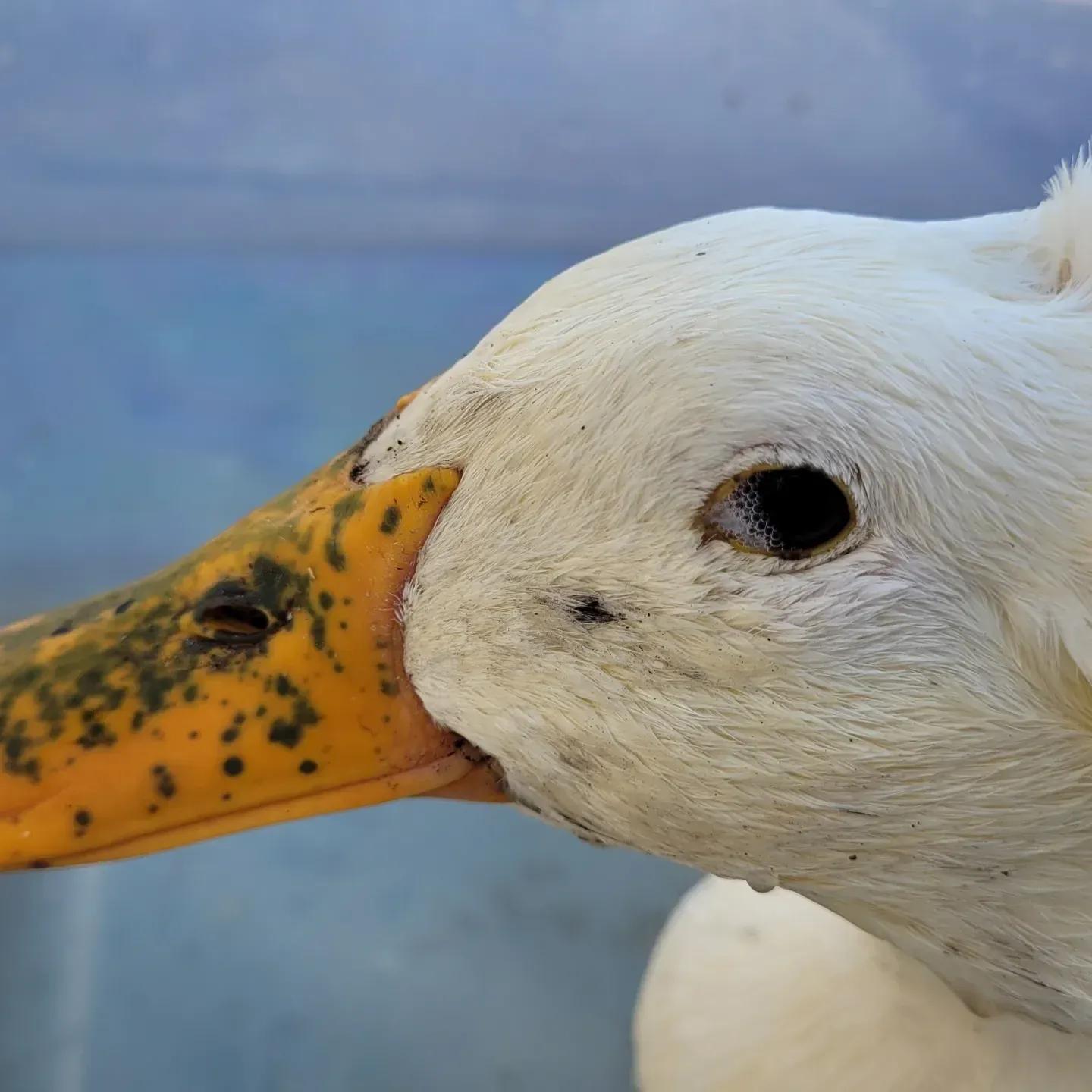 Duck eye with foamy white discharge
Duck eye with foamy white discharge
Cloudiness and Cataracts in Ducks
Cloudy eyes often indicate cataracts, where the lens opacifies, more common in seniors due to genetics, diet, or stress. Symptoms include haziness progressing to blindness, squinting, and navigation issues. Surgical lens replacement can restore vision, per avian vets. Monitor diet for vitamin A and reduce stressors.
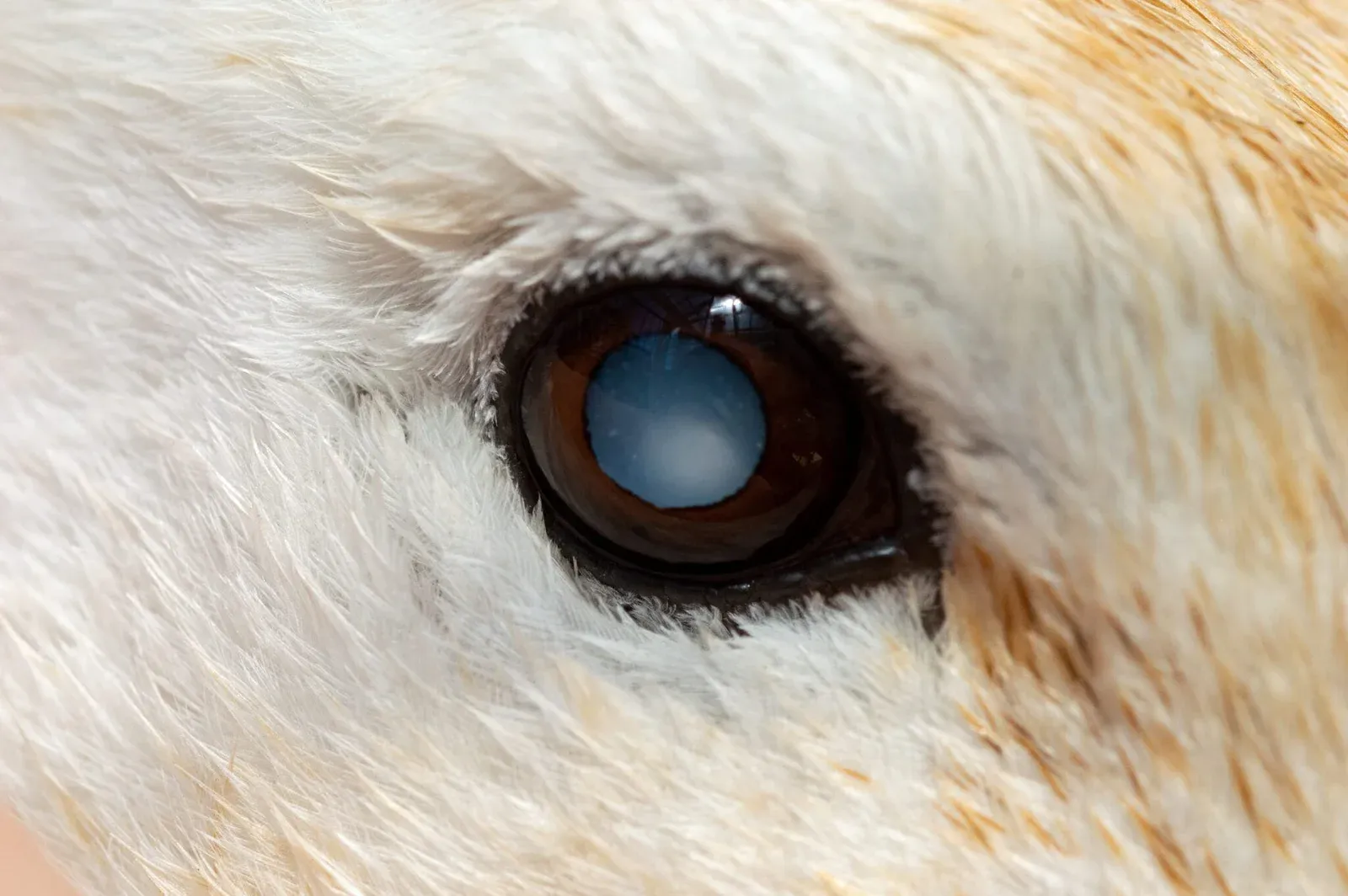 Macro shot of cataract in a domestic duck's eye
Macro shot of cataract in a domestic duck's eye
Prevention Strategies for Eye Infections in Ducks
Preventing eye infections in ducks focuses on hygiene, nutrition, and monitoring. Implement these vet-recommended steps:
- Clean Living Spaces: Sanitize coops, pens, and ponds daily to eliminate bacteria.
- Good Ventilation: Reduce humidity and contaminants.
- Balanced Nutrition: Offer duck-specific feed with vitamins; fresh water always.
- Water Quality Control: Refresh sources to avoid contamination.
- Limit Irritants: Use clean bedding; avoid overcrowding.
- Hygiene Practices: Wash hands before handling.
- Daily Monitoring: Check for early signs.
- Manage Aggression: Separate during mating season.
- Isolation if Needed: Prevent injury spread.
- Routine Vet Visits: Catch issues early.
These habits promote lifelong eye health.
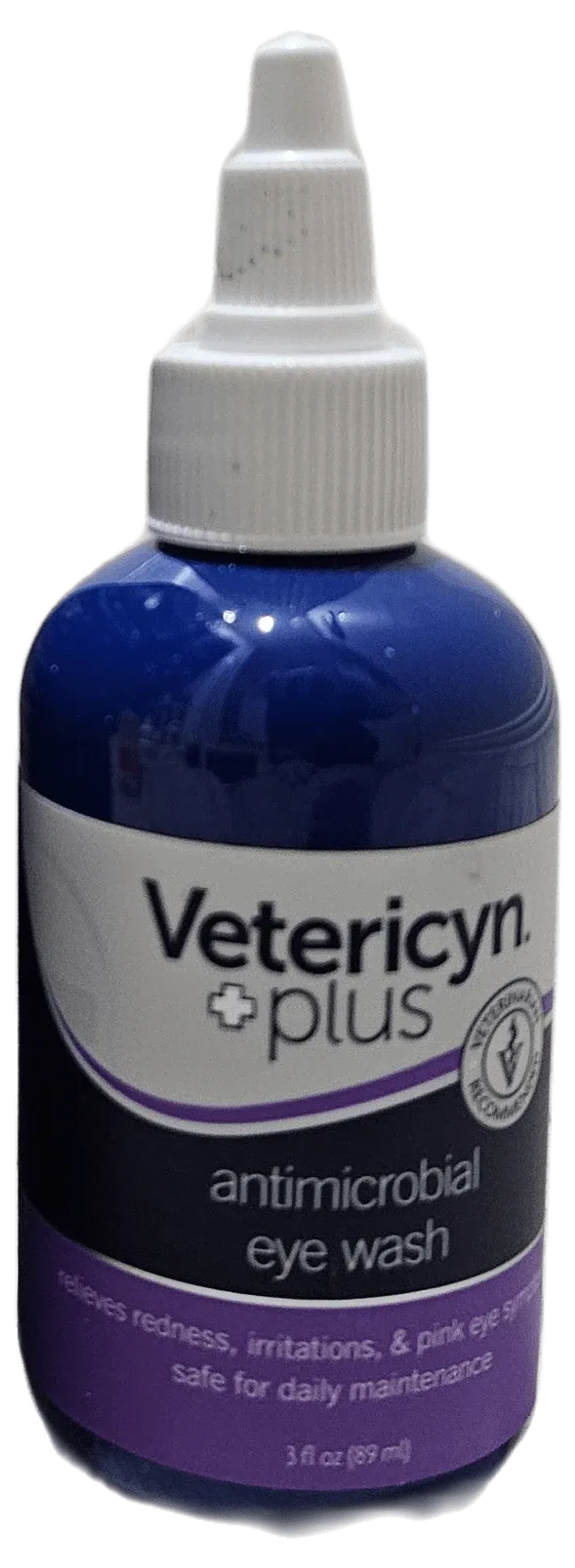 Infographic on duck eye health prevention tips
Infographic on duck eye health prevention tips
Treatment Options for Eye Infections in Ducks
If eye infections in ducks occur, act swiftly with these treatments under vet guidance:
- Gentle Cleansing: Use saline or lukewarm water on soft cloths.
- Eye Washes: Products like Vetericyn Plus flush irritants safely.
- Antibiotics: Vetropolycin or OTC Terramycin for bacteria.
- Anti-inflammatories: Meloxicam reduces swelling.
- Environment Tweaks: Clean, dry spaces aid recovery.
- Nutritional Boosts: Vitamin A supplements.
- Supportive Care: Monitor and rest the duck.
- Vet Evaluation: Essential for diagnosis.
Early treatment yields quick recoveries.
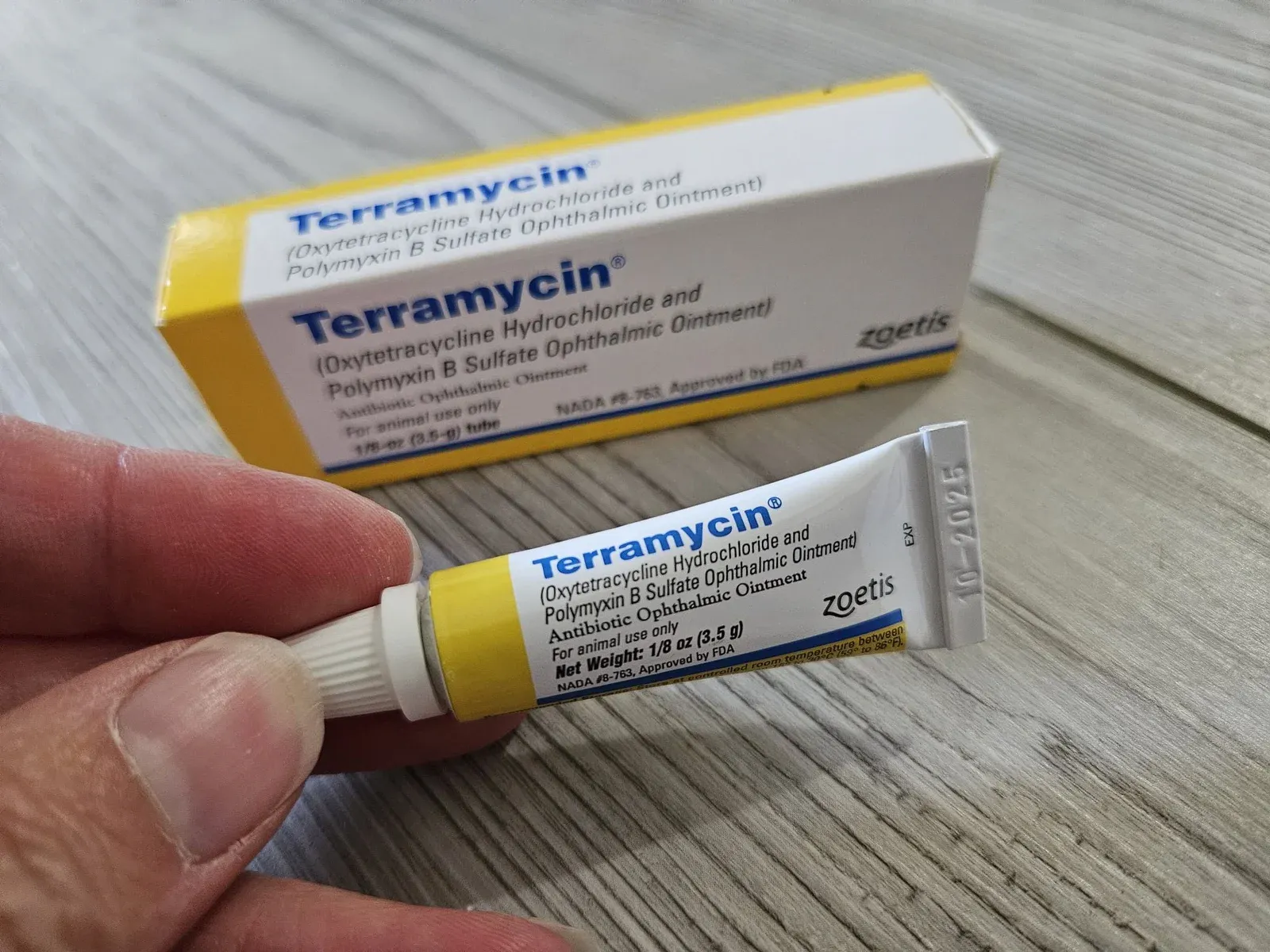 Terramycin ointment tube for treating duck eye infections
Terramycin ointment tube for treating duck eye infections
Conclusion
Prioritizing eye infections in ducks through awareness of causes, vigilant symptom spotting, robust prevention, and prompt treatment ensures your ducks thrive with clear vision. Consult avian vets for personalized advice, maintain clean habitats, and balanced diets for optimal results. Share your duck care tips in the comments—what’s your go-to prevention strategy?
References
- Avian veterinary guidelines from experienced duck health resources.
- Product insights from trusted animal care studies.
- Personal flock management experiences aligned with professional recommendations.
